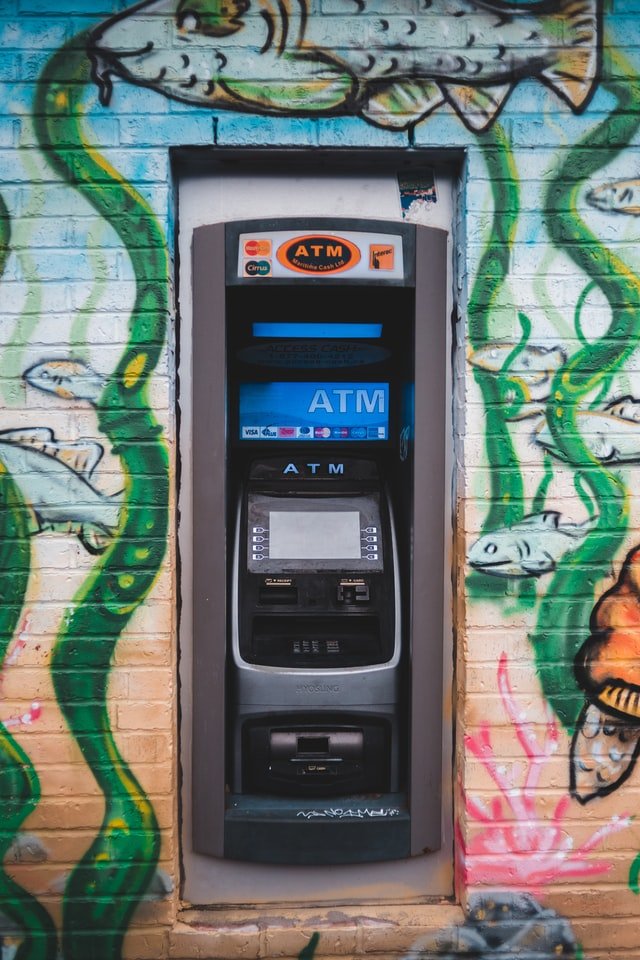Use of Debit Card Abroad Compared To Holiday Travel Money (AD)
The chances are if you’ve Googled the term “use of debit card abroad”, you’re looking to find out whether that plastic payment card hiding in your wallet is fit for your next holiday or trip. I’m going to look at how having a good travel money card (debit or credit) can compare to cold hard foreign currency obtained before going abroad. I should say, there’s no one size fits all here. After all everyone’s finances, destinations and travel budgets will vary wildly. That being said, hopefully, this article will reassure you that there are conveniences associates with both foreign currency and the use of a debit card abroad.
Should I consider the use of debit card options abroad?
If you are looking into the use of a debit card abroad, gone are the days where you’d pay through the nose for the privilege. There are a whole host of cards available out there with an array of features and costs associated with their use.
Accepted most places
One of the most useful perks of taking a debit or credit card on your travels is the ease of acceptance. Gone are the days where only a few major cards were accepted across the globe. Now you can use many types of cards, mobile payment apps and even make use of your contactless capabilities during foreign travel. It is also really handy that the vast majority of established stores and services in many countries still display visa and MasterCard logos in their windows to show their acceptance.
It should be noted that whilst many cards and bank accounts do not need pre-notification for foreign spending, it is worth contacting your bank to check this facility is active before you travel.
Use of contactless debit card abroad in covid times
It goes without saying that more and more people are concerned about handling cash in the current pandemic climate. Cash can circulate freely and there is no real guarantee where it’s been and how soon it is re-circulated. With this in mind, learning how to use your debit card abroad, and sourcing the correct one, could be a far safer option for you as a traveller.
A credit or debit card with the activated contactless feature would give additional safety as it would prevent the need to enter your pin number regularly on handled keypads.
Withdraw only what you need
Yup. That’s right. With a good travel debit or credit card, there’s no need to rock that holiday money bag on your hip and feel like you’re always on your guard for pickpockets. The convenience of having a lightweight card, or even your banking services linked via a contactless payment wallet on your mobile device, means you’re free of bulk and weight and able to enjoy your holidays to the max.
Pay in the local currency
There are additional tips to be extra savvy with the use of debit card services abroad. One of the main tips is to pay where possible in the local currency to avoid constant foreign exchange costs that may be levied by your card issuer. I’ve written about this recently in my guide to accessing some foreign services abroad in a cheaper way by paying in the local currency. Take for example getting cheaper Netflix, this can be accessed cheaper than the UK in other countries and used via a VPN, perfect for not only when abroad, but also when back home.
Track spending and transactions easily online and via app
Digital apps, wallets and fintech offerings are commonplace these days. Each banking app will have different features, pros and cons, and ease of use. However, one common feature is the ability to track your spending (including pending payments) via the bank’s app or online service. You can also link your account to many other services and apps that may be useful in foreign countries – including apps for vehicle hire and electric scooter hire.
Secure in the event of theft or loss
Most cards can be easily frozen or blocked via your bank’s mobile app or via customer services within minutes. This makes the use of a debit card abroad much more secure than physical cash which if lost is virtually unrecoverable. Having a card also means you are less of a visual target to any would-be criminal who could spot a traveller with a wallet full of cash.
Is foreign currency bought in advance better than the use of debit card abroad?
Currencies from around the world can be easily delivered or collected these days. You can often order online for convenience. Most travel money services offer a buy-back service also, meaning you’re not left with drawers full of unwanted foreign currency for years to come.
Aside from the novelty of handling foreign currency, what are the other benefits of buying foreign travel money to take abroad?

No need to find an ATM
I’ve experienced the hassle on past holidays of needing to find an ATM in remote towns and villages. The more ‘off-grid’ your journey is, the less likely you are to have easy access to card services. Therefore if you need to pay for that elephant ride in Thailand, or produce from a local market in Cambodia, the chances are having local currency to hand is your best bet.
Handy for small, local shops, services and markets that don’t take cards
In general, for UK travellers, the eurozone is a common destination. But for those venturing from the main towns and cities, or going further afield, cash to hand in the local currency can give that extra peace of mind. It can also be used in some countries where the minimum spend threshold on a transaction is higher.
No additional fees once exchanged
Buying your foreign currency before you go gets most fees on the exchange out of the way before you go. This makes budgeting for a holiday or travel easier and prevents the need to pop back and forth to ATM machines, potentially racking up more transaction fees.
Better for budgeting for foreign travel
Having pre exchanged your local currency for that of your destination allows you to have a set budget from the outset. Just like a mobile banking app, many who use foreign cash like to keep a tally of their daily spends in order to help spread the costs over the duration of their trip and prevent funds from running dry. Whilst banking apps and online services will track your spending for cards, access isn’t guaranteed in some places around the world. Having local currency, and a noted log of your spending and planned spending can be a life saver. I frequently write about the importance of budgeting, planning your spending, and conducting money-saving challenges – it makes great sense to keep these skills honed and be money savvy.
Risky in terms of theft or loss.
The bottom line with cold hard cash is it’s a physical item that can be lost, stolen or mishandled. If you’re not familiar with the value or how it compares to your local currency, you could potentially overpay for services and goods. Compared to a good travel debit card, cash is a real risk and I’d advise learning about the local value and what to expect in terms of prices.
For example, alcohol can be dirt cheap in some travel destinations and extortionately taxed in others. Being unaware of this can really catch you out.

Should I take foreign currency or my travel debit card abroad?
As you can see from the tips I’ve outlined above, each method for foreign payments and money management has its pros and cons. If I was jetting off to a foreign travel destination right now I’d want to have the best of both worlds. This is why I would always recommend having your travel debit card to hand for emergencies and use in major cities and towns in established world destinations. I would then have a small amount of foreign currency I would take that’s been exchanged in advance.
Doing this will give you breathing space and allow you to cope if either payment method becomes an issue. Where there’s no ATMs, wi-fi or service signal for your mobile banking and contactless debit card, use cash. When modern luxuries like wi-fi and ATMs are in abundance, rely on your debit card. Ultimately, travellers need to consider their destination, the costs of services and goods expected and plan accordingly.

